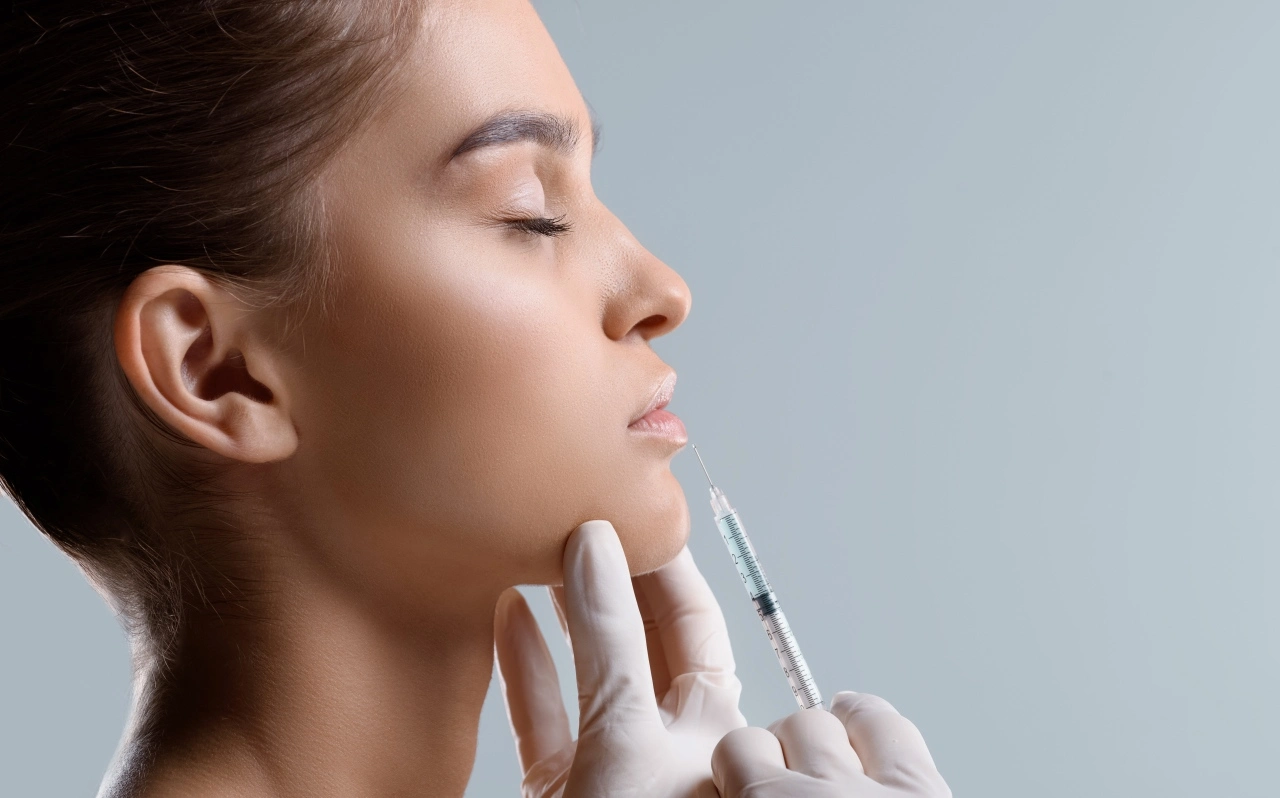What Are Peptides?
Peptides are short chains of amino acids that act as essential building blocks in the body, playing a vital role in many biological functions such as cell signaling, tissue repair, and overall wellness. Whether naturally occurring or synthetically created, peptides are fundamental components in skin health, cosmetics, and medical research. Understanding what peptides are, how they work, and their benefits can help you make informed decisions about incorporating them into your wellness or skincare routine.
Understanding the Basics
What Exactly Are Peptides?
Peptides are molecules made up of two or more amino acids linked together in a specific sequence by peptide bonds. They are smaller than proteins but larger than individual amino acids. Peptides serve as messengers within the body, sending signals to cells that help regulate various physiological processes, including skin elasticity, collagen production, and immune response.
Peptides can be found naturally in the body, in foods, and can also be synthesized in laboratories for use in supplements, medications, and skincare products. Their versatility and specificity make them valuable in both health and cosmetic applications.
Peptides & Amino Acids: The Fundamentals
Amino acids are often called the "building blocks of life." When two or more amino acids join together through a chemical bond known as a peptide bond, they form a peptide. The number and sequence of amino acids determine the function of each peptide. For instance, some act as hormones, while others serve as neurotransmitters or structural elements within tissues.
There are 20 standard amino acids, and the arrangement of these within a peptide influences its biological activity. When just a few amino acids are linked, you have a peptide. When hundreds or thousands are chained together, they form a protein.
Peptides vs. Proteins
Although both peptides and proteins are composed of amino acids, the primary difference lies in their size and complexity. Peptides are typically made up of 2 to 50 amino acids, whereas proteins are much larger, often containing hundreds or even thousands of amino acids.
This size difference is not just academic; it impacts their biological role. Peptides can easily penetrate the skin and cellular barriers, making them ideal for targeted therapies and skincare applications. Proteins, due to their size, may not be as readily absorbed.
| Characteristic | Peptides | Proteins |
|---|---|---|
| Size | 2–50 amino acids | 50+ amino acids |
| Structure | Simple chains | Complex folding |
| Function | Signaling, regulatory | Structural, enzymatic, etc. |
| Absorption | Easily absorbed | Less easily absorbed |
{image}
Types of Peptides
There are hundreds of different peptides found throughout nature and in the human body, each with unique functions. Some of the most commonly discussed types include:
- Signal Peptides: These send messages to cells, directing them to perform specific actions such as producing more collagen.
- Carrier Peptides: These transport essential minerals to the skin, supporting repair and health.
- Enzyme-Inhibitor Peptides: These peptides inhibit enzymes that can break down collagen and elastin, preserving the skin’s youthful appearance.
- Neurotransmitter Peptides: Mimicking the effects of Botox, these peptides can relax facial muscles and reduce expression lines.
- Antimicrobial Peptides: Defend the body by destroying harmful bacteria and pathogens.
Each type of peptide can be harnessed for specific health, cosmetic, or therapeutic purposes. For example, signal peptides are frequently used in skin treatments to boost collagen and elastin for firmer, more youthful skin.
{image}
How Peptides Work in the Body
Peptides function primarily as biological messengers. Once released, they interact with specific receptors on the surface of cells, triggering a cascade of responses. These can include:
- Stimulating the production of collagen and elastin in the skin
- Supporting muscle growth and repair
- Enhancing immune system activity
- Regulating hormone levels
- Promoting wound healing
Because of their small size, peptides can easily penetrate tissues and target specific cells, making them highly effective in both medical and cosmetic applications. For example, peptides used in injectable treatments or topical skincare can deliver targeted benefits with minimal side effects.
Peptides continue to be a major focus of research in regenerative medicine, anti-aging, and chronic disease management. Their ability to modulate biological processes with precision makes them valuable tools in both preventative care and active treatment.
Benefits and Uses of Peptides
Peptides have gained popularity in both the health and beauty industries due to their wide-ranging effects and versatility.
Health Benefits of Peptides
- Muscle Growth & Repair: Certain peptides, such as growth hormone-releasing peptides, are known to stimulate muscle growth and accelerate recovery after injury.
- Anti-Inflammatory Effects: Some peptides reduce inflammation, which can help manage conditions like arthritis or autoimmune disorders.
- Enhanced Healing: Peptides can promote faster wound healing and tissue regeneration, making them useful in both medical and cosmetic settings.
- Immune Support: By influencing the immune system, peptides can help the body fight off infections and recover from illness more efficiently.
Peptides in Skincare and Wellness
Peptides are widely used in skincare products and cosmetic treatments for their rejuvenating effects:
- Collagen Stimulation: Signal peptides can instruct skin cells to boost collagen production, improving skin firmness and reducing wrinkles.
- Hydration and Barrier Function: Certain peptides enhance the skin’s natural barrier, improving hydration and resilience.
- Reduction of Fine Lines: Neurotransmitter peptides can help relax facial muscles, reducing the appearance of expression lines.
- Brightening and Even Tone: Some peptides are formulated to reduce pigmentation and improve overall skin tone.
In clinical settings, peptides are often paired with other advanced treatments. For instance, they may complement procedures like Dermapen or injectable products such as dermal fillers to enhance outcomes.
{image}
Why Are Peptides Important?
Peptides play an indispensable role in maintaining the body’s structure, function, and appearance. Their importance stems from their ability to:
- Regulate Critical Biological Processes: Peptides act as messengers, orchestrating many bodily functions from hormone regulation to cell repair.
- Offer Targeted Therapeutic Benefits: Their specificity means that peptides can be designed to target particular issues without affecting other systems, reducing unwanted side effects.
- Promote Youthful and Healthy Skin: In the realm of aesthetics, peptides are essential for triggering the skin’s natural rejuvenation processes, making them a cornerstone of modern anti-aging skincare.
Thanks to ongoing research, the list of benefits associated with peptides continues to grow. They remain at the forefront of innovation in both injectables and non-invasive wellness approaches.
Safety and Considerations
Peptides are generally considered safe for most people when used as directed—whether in topical skincare products, injectables, or as part of a wellness regimen. However, several considerations are important:
- Source and Quality: Ensure peptides are sourced from reputable manufacturers and used in products tested for safety and efficacy.
- Allergic Reactions: Although rare, some individuals may experience skin irritation or allergic reactions when using peptide-based skincare.
- Interactions: If you have underlying health conditions or are on medication, consult a medical professional before starting new peptide supplements or treatments.
- Appropriate Usage: Always follow directions for use, as overuse or misuse can lead to undesired outcomes.
When considering peptide-based treatments, look for providers and products that prioritize clinical evidence and patient safety.
Conclusion
In summary, peptides are short chains of amino acids that play a crucial role in numerous biological and cosmetic processes. From boosting collagen and promoting youthful skin, to supporting muscle growth and immune health, peptides are versatile and powerful tools in both wellness and aesthetics. Understanding what peptides are and how they work can help you harness their benefits with confidence and safety.
TIMELESS RESULTS,
NEW YOU

By Dr. James Christian
October 24, 2025
Explore More Blogs
Discover other insightful and engaging content from our blog




